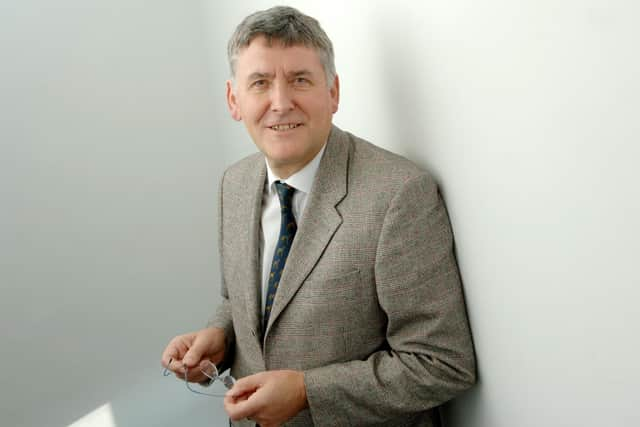Ian Rainey: Rugby world cup win cannot hide the problems in South Africa


He said: “It was a victory for all South Africans and a turning point for both the country and the sport.”
While agreeing that it was great for South African sport Julius Maleema, president of the Economic Freedom Fighters Party, was quick to point out that 69% of the Springbok team were white in a country where 90% of the people are black.
Advertisement
Hide AdAdvertisement
Hide AdHe and his many followers will not be satisfied until 100% of the team will be non-white and they are no longer The Springboks.


As someone who lived in South Africa for 10 years it was great to be cheering for a South African team who could beat England and in doing so join New Zealand as the only two teams who have won the World Cup on three occasions.
They also achieved something that the New Zealanders cannot claim; that in those three victories no one ever scored a try against them.
It was interesting to see President Cyril Ramaphosa mimicking President Mandela as he posed with Siya Kolisi the Springbok captain, as Francois Pienaar did with Mandela in 1995.
Advertisement
Hide AdAdvertisement
Hide AdWhile Mandela endured 27 years in prison at the hands of an Afrikaans government Ramaphosa has been a very successful businessman, having enjoyed making a $450m fortune mostly from having the McDonalds franchise for South Africa as well as being a director of one of the largest mining conglomerates.
It is also interesting to point out that Ramaphosa is no stranger to Northern Ireland in that in the year 2000 he was asked by Tony Blair to assist in overseeing the disarmament process here.
While he may have found that an interesting political exercise, he now finds himself in an equally intriguing situation as he tries to hold his African National Congress Party together at a time of bitter infighting and a rapid decline in the country’s economic performance.
While South Africa has some 0.8% of the world’s population it has 3.2% of the worlds unemployed. Only Venezuela has an official unemployment rate which is higher than South Africa.
Advertisement
Hide AdAdvertisement
Hide AdSouth Africa’s problem is not only its number of children but mainly its number of wives.
President Zuma, Ramaphosa’s predecessor, had four wives.
While in South Africa in the 70’s I went pony trekking in the mountains of Lesotho.
We purchased eight horses in the capital Maseru and set off trekking through the mountains.
Unfortunately, we came upon a violent storm with thunder and lightning which made the horses virtually unmanageable.
Advertisement
Hide AdAdvertisement
Hide AdWe took refuge at an African Kraal which was made-up of six rondavels (or round thatched huts) The head man agreed to corral the horses into his pen and ordered his number one (or present) wife to join his number two wife in her rondavel.
We may not have slept well but we welcomed the gesture and were somewhat surprised the next morning to see that he had not only six wives but had twenty-one children.
While he was quite active by today’s standards King Sobuza 11 in neighbouring Swaziland had 70 wives and 210 children between 1920 and 1970.
At his death he had more that 1,000 grandchildren.
Unemployment today is reckoned to vary between 24% and 27% and the problem is getting worse.
Advertisement
Hide AdAdvertisement
Hide AdOver the past decade South Africa’s population has grown by almost 4m but the number of people in employment has increased by only 2m.
During this time GDP growth has only averaged 3.6% while in the three years before 2008 it surpassed 5%.
High public spending and low growth has left the country in a perilous fiscal position.
After running surpluses every year from 2005/6 to 2008/9, there has been a fiscal deficit every year since.
Advertisement
Hide AdAdvertisement
Hide AdThe ratio of public debt to GDP is predicted to reach 60% by 2023/24. As a result, two of the three major credit-rating agencies assess South African debt as ‘Junk’.
Just 1% of taxpayers pay 61% of personal income tax.
On top of this Ramaphosa and his ANC Party have had to give into the Economic Freedom Fighters’ demands for “expropriation of land without compensation”.
This leaves the economy in a very difficult situation where much of the appropriated land lies fallow as the local African has no experience in farming. At best the desire for land reform is an understandable reflection of the enduring inequalities caused by white rule.
At worst it is a cynical tool that risks hurting the economy and thus the poorest citizens at a time when the country is not in need of any more headaches.
Advertisement
Hide AdAdvertisement
Hide AdThe president has a heavy cross to bear and if I was back in international banking, I wouldn’t be lending him any money in the foreseeable future.
• Ian Rainey is a former international banker and executive recruiter